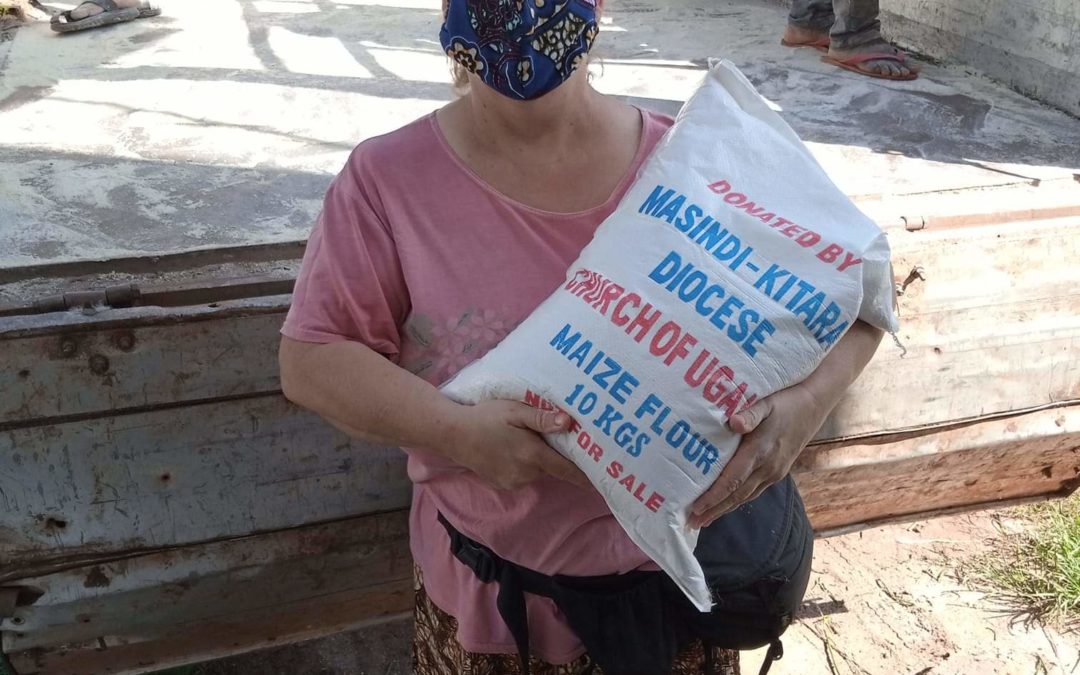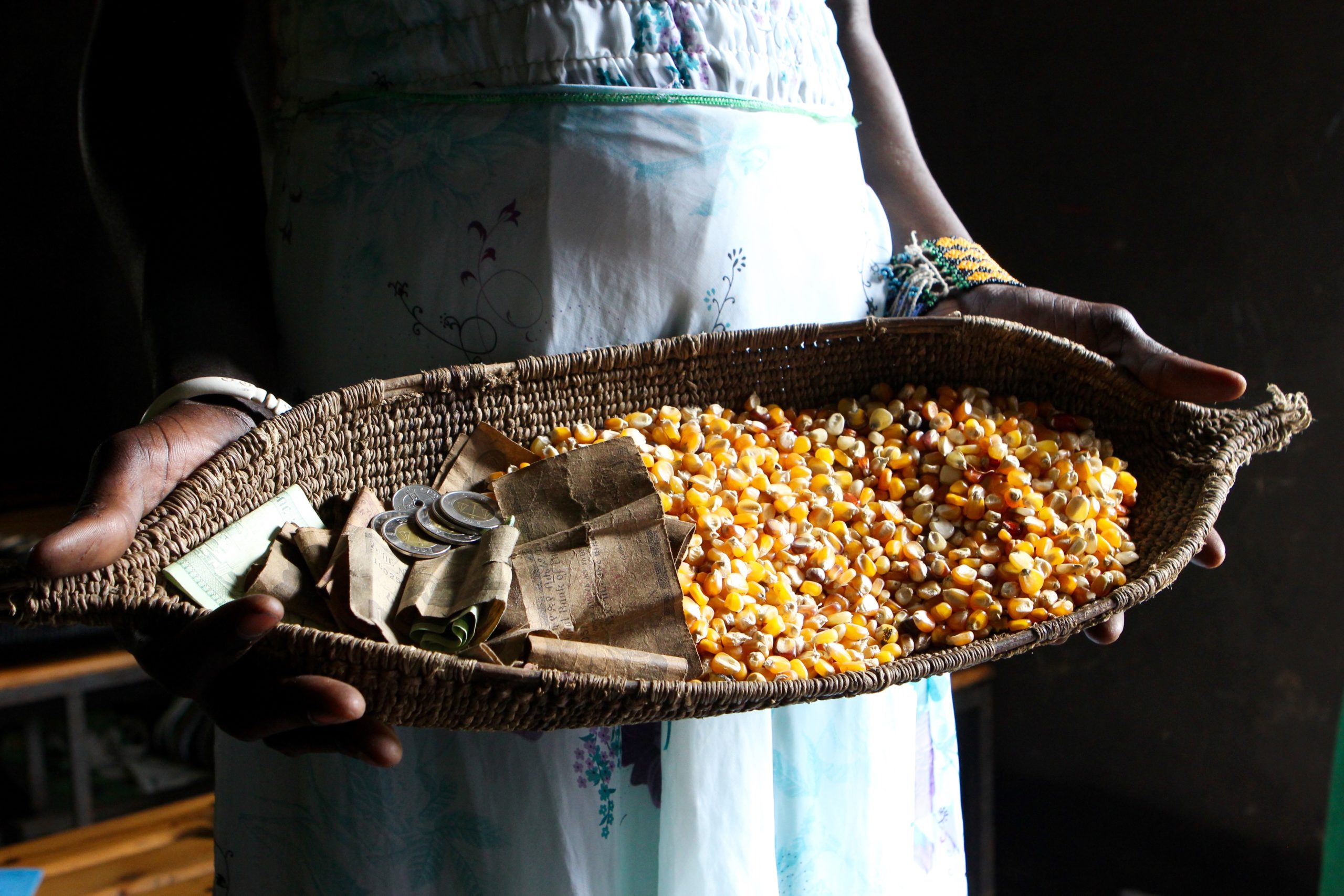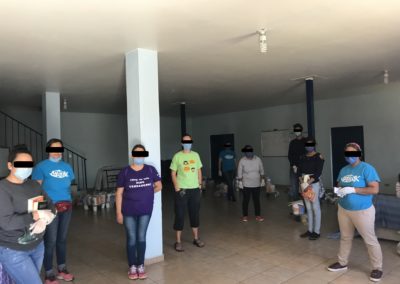
Christ’s Love Made Known Amidst the Pandemic
A pandemic is difficult any place in the world. Yet, it is especially difficult in the towns and villages of rural Uganda, in East Africa. Uganda has been very aggressive in restrictions attempting to stop the spread of COVID-19. Because the health system was inadequate before the pandemic and is woefully prepared for the disease now spreading here, the restrictions are very harsh: all public and private transport forbidden and all but essential stores and businesses closed. The severe lockdown has left many hardworking people suddenly stopped from their jobs with little or no savings and no economic assistance from the government. There is some government distribution of food, but it is not enough and generally focused on the most urban areas in and near the capital city. Our diocese, Masindi-Kitara Diocese, Church of Uganda, is upcountry rural, and people here are mostly expected to fend for themselves. So, someone who say runs a clothing, stationary, or sewing supplies store here or pretty much anything other than food stores, pharmacies, agricultural supplies and designated essential services has had to suddenly close their stores. People working in hotels, bars, clothing stores, and so forth have lost their jobs. Public taxi drivers (which function like busses in the US) and private taxi drivers have no work. Further, while some people might have relatives in a farming village who would feed them, travel is virtually impossible for most people due to our health laws. Even if they are willing to walk for days, a night curfew forbids this, too.
As a result, many people are scrambling looking for food. The other day, I had an elderly woman at my house who couldn’t do her regular work. Her food pantry consisted of only one 2-pound bag of cornmeal. There are lots of people in such situations–trying to stretch what little food they have or going hungry. Many families here have a number of children to feed also. No one should have to face choosing between risking jail or getting shot for breaking the laws versus having their family starve. Family food stores have been used up. Many people have little to no food—surviving on handfuls of maize meal only, eating one meal a day, or even sleeping hungry. Food relief, basic survival food like maize, is needed. People here need help to live through the crunch of this pandemic, and later will need food to help them work back towards a normal life.
Through my SAMS Special Project and a grant from SAMS World Relief Fund, the Masindi-Kitara Diocese is receiving direct funding, in addition to what they have raised and are continuing to raise locally, to provide food. The diocese is purchasing basic foodstuffs, primarily maize meal, which is being distributed to the needy with the cooperation of the Ugandan Government COVID-19 Taskforce in the three government districts covered by the Diocese. The bags for the maize meal are marked as coming from the church so the community can see how the church is active in helping mitigate the hunger problem. The Diocese is eager to continue with helping to provide food relief should additional funds become available. Additionally, after the immediate emergency food relief is done, in order to assist children in educational institutions the diocese would like to provide food to church-related educational institutions for when they resume schooling. It is very clear that with the economic hardship many parents will be unable to provide lunches for their school-children. This has historically been a challenge and food aid will assist the children who are a significant part of the vulnerable population here.
A basic Biblical principle is that Christians are to care for other Christians in need and also for other people, especially the very vulnerable (James 1:27.) This is not limited to teaching or praying, though those be important, but also extends to the physical needs. (James 2:16) Indeed, real love is a hallmark of following Jesus and a key to evangelism. There is an old saying, “People don’t care how much you know, until they know how much you care.” Every bag of maize delivered, labeled as being from the church, is showing in deed the love of Christ. The love of Christ draws people to the Father. When the Church shows love in practical, tangible ways meeting severe immediate needs this makes Christ’s love known, leading to more people knowing God.

An offering of maize in church, during better times.










